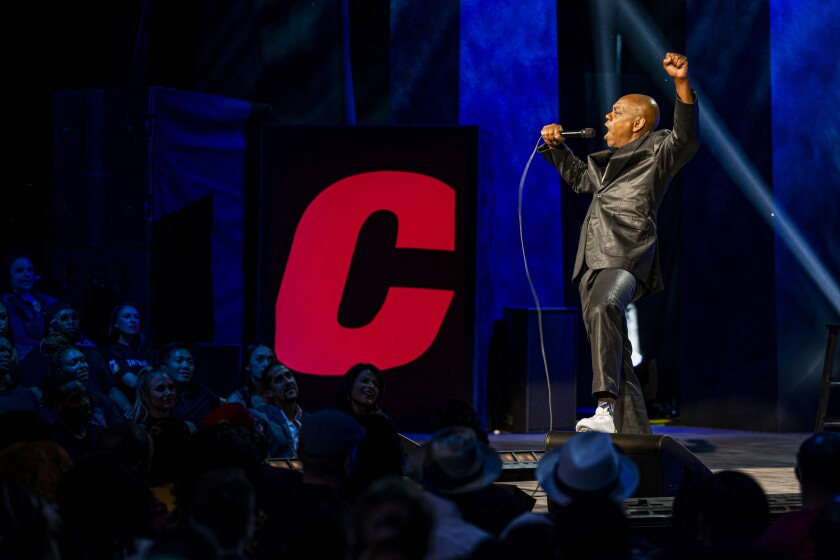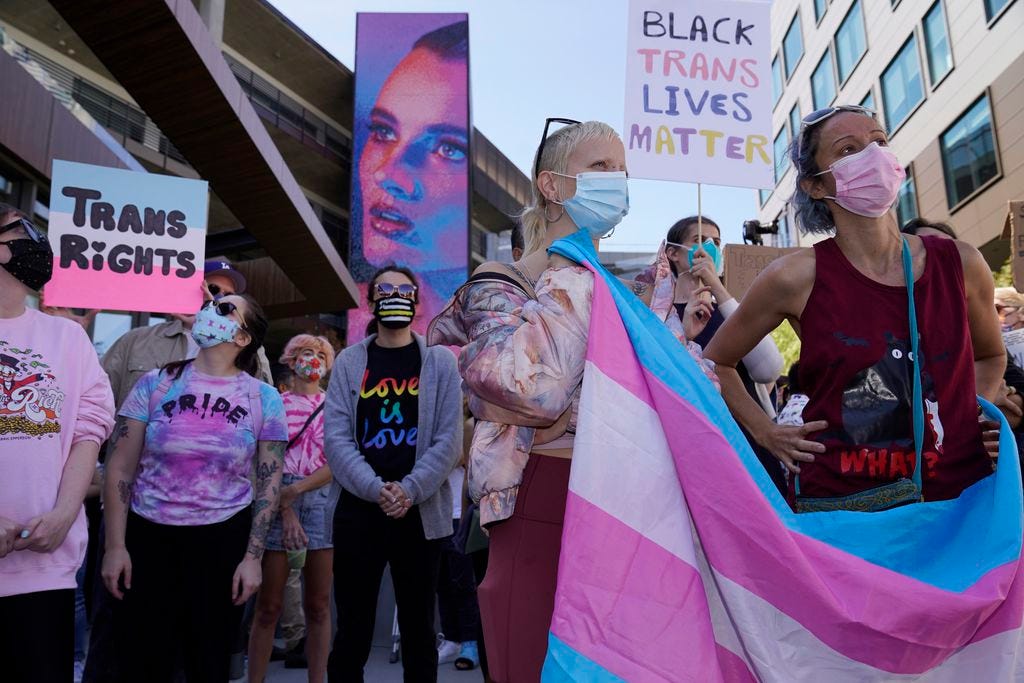I Watched the Dave Chappelle Special So You Don't Have To
He vows not to make fun of the LGBTQ community anymore, so it's all okay
As of this writing, Netflix employees are staging a walkout over transphobic remarks recently made by comedian Dave Chappelle in his new Netflix special “The Closer”, seen as “a revolutionary act of defiance” by some and “using white privilege to excuse his own homophobia and transphobia” by others. During his hour-and-twelve-minute routine, Chappelle makes every effort to do what comedians have been doing for years, which is push the envelope.
The main difference between someone like Chappelle and the comedy legends that came before him is subject matter. Lenny Bruce, George Carlin, Richard Pryor, Wanda Sykes, and Joan Rivers either took aim at those in power or made fun of themselves. Chappelle directs his wit at women, Jews, the LGBTQ community in general, and trans people in particular, but never himself, and never people of color.
Perhaps if the field of slaughter had included everyone, I might not have balked at the unusual specificity of his humor. As it turns out, Chappelle views what he does as art, and since art is in the eye of the beholder, he can’t be held liable for our “interpretation.” Theoretically, that’s an airtight argument; in practice, however, Chappelle’s aim is clearly to offend. He cops to it right out of the gate, saying this will likely be his last Netflix special, which tells you he knows what repercussions will follow.
Chappelle spends three-quarters of his time lobbing some pretty lame jokes. The greatest crime he may have committed here was his failure to be funny. Not that I’m the Ultimate Decider in such matters, but he only elicited a chuckle from me twice. I was put off by his audience, who gave off cult-following vibes. To them, Dave Chappelle is the G.O.A.T., the Truth Teller, a Black superhero going toe-to-toe with cancel culture. And maybe he is. Perspectives other than my own are valid.
But couldn’t his point have been made without being so spectacularly offensive? Instead of shooting bullets at the trans community, couldn’t he have poked holes in cancel culture itself? In the end, Chappelle came across like that friend you have—you know the one—who says, “There are bad Black people, just as there are bad white people.” In in the end, it’s the distinction itself that’s the problem, not the shopworn sentiment about bad people.
I suspect that Chappelle might argue that as a Black man in America, he and the trans community are on equal footing. He may be right. I’m a white woman, and I can’t make that call. But from my admittedly white perspective, it seems as though Chappelle is punching at a downward angle. We’ve had a Black president, but not a trans one. Everyone thinks Dave Chappelle is cool, but who idolizes Caitlyn Jenner?
On one subject, Chappelle and I are in thunderous agreement: white feminism does not have a history of inclusivity, and I find that appalling. Even before the turn of the last century, the Black abolitionist and women’s rights advocate, Sojourner Truth, gave her “Ain’t I A Woman?” speech to a group of privileged, white women who didn’t actually want her to speak. Perhaps the same kind of “white facing” is happening in the LGBTQ community, too. I can’t say. But in his admitted envy of the rapid advancement of LGBTQ rights versus those of the Black community, he has a point. Racism abounds, irrespective of social status. Better to be white and queer than Black and poor.
When Chappelle takes a buggy whip to the white community, he’s usually his funniest. Not so when he sets his sights on minority groups that are more of a minority than his. I might have forgiven the “Bitch, suck my d**k” jokes, of which there were plenty, but what I found truly unforgivable was his attempt to walk it all back by proclaiming he’d set up a trust fund for the daughter of Daphne Dorfman, a trans female comedian who’d recently committed suicide after getting dragged on Twitter over her support for Dave Chappelle.
The optics are not good. Chappelle was taking a lot of heat over his transphobic remarks. He needed a beard. Enter Daphne, his biggest fan, a woman who came to his shows and laughed harder than anybody. Without even bothering to see her perform, Chappelle asked Daphne if she wanted to open for him in San Francisco. She enthusiastically said yes. And yet, her support for him cost her the respect of her own community. For reasons that remain unclear, Daphne committed suicide six days later.
Chappelle blames cancel culture for Daphne’s death. We will never know for sure what happened. But his announcement of the trust fund felt emotionally manipulative. That’s something you tell a few close friends, not the general public—especially when you’re under fire for being perceived as transphobic.
In “The Closer,” Chappelle becomes the guy who insults you to your face but then tries to woo you back by telling you all the great things he did down at the dog shelter. And we’re so busy looking at him right now, especially in light of the Netflix walkout, that we’re not seeing the truth about ourselves.
All viewpoints are valid until they become intolerant. Was Chappelle being intolerant, or was he doing what we pay him to do, which is perform? Maybe the goal shouldn’t be shutting down the ones who offend us, but learning how to actually talk to them about why they are offensive. I’d like to see Chappelle go up against his detractors in a modern-day version of the panel shows where sixties’ conservative William F. Buckley and lefty intellectual Gore Vidal used to trade barbs.
"In our country, you can shoot and kill a n***," Chappelle says. "But you better not hurt a gay person's feelings." While it is clear that he is committed to making his audiences think, these are not nuanced arguments stemming from a consideration of other perspectives. They’re a lament given by a wealthy, successful man who never has to worry about getting stomped for using the wrong bathroom. I hear privilege here, even if it isn’t white privilege.
I just wish he’d turn some of that high-wattage perception on himself.
Have you seen Dave Chappelle’s show? If so, I’d love to hear what you’ve got to say. Feel free to leave your comments below.







Thanks for watching it so I don't have to. That's 72 minutes of my life I can do something positive with. :-)
I've not seen, and will not see it. I'm glad you mentioned feminism's shameful history of racism, because that was the first direction my thoughts turned as well. But many -- certainly most academic (within the limits of my reading) -- feminists now own up to that history. Which is why I find TERF's like J.K. Rowling so difficult to comprehend.
The quote:
"In our country, you can shoot and kill a n***," Chappelle says. "But you better not hurt a gay person's feelings."
Is unspeakably vile of him, in no small part because it is such a bald faced lie. Comedy will engage in exaggeration to tell a bigger truth, but that's not it. If he wanted to speak the truth, he should have said, "But you better not hurt a white man's feelings."
Oh well. I'm def not seeing it.
Oh, I did have to look up "G.O.A.T." because I'm not very up to date on current lingo. I've no idea what "Get Off At Tupelo" has to do with Chappelle, but whatever ...
(JK. Greatest Of All Time)